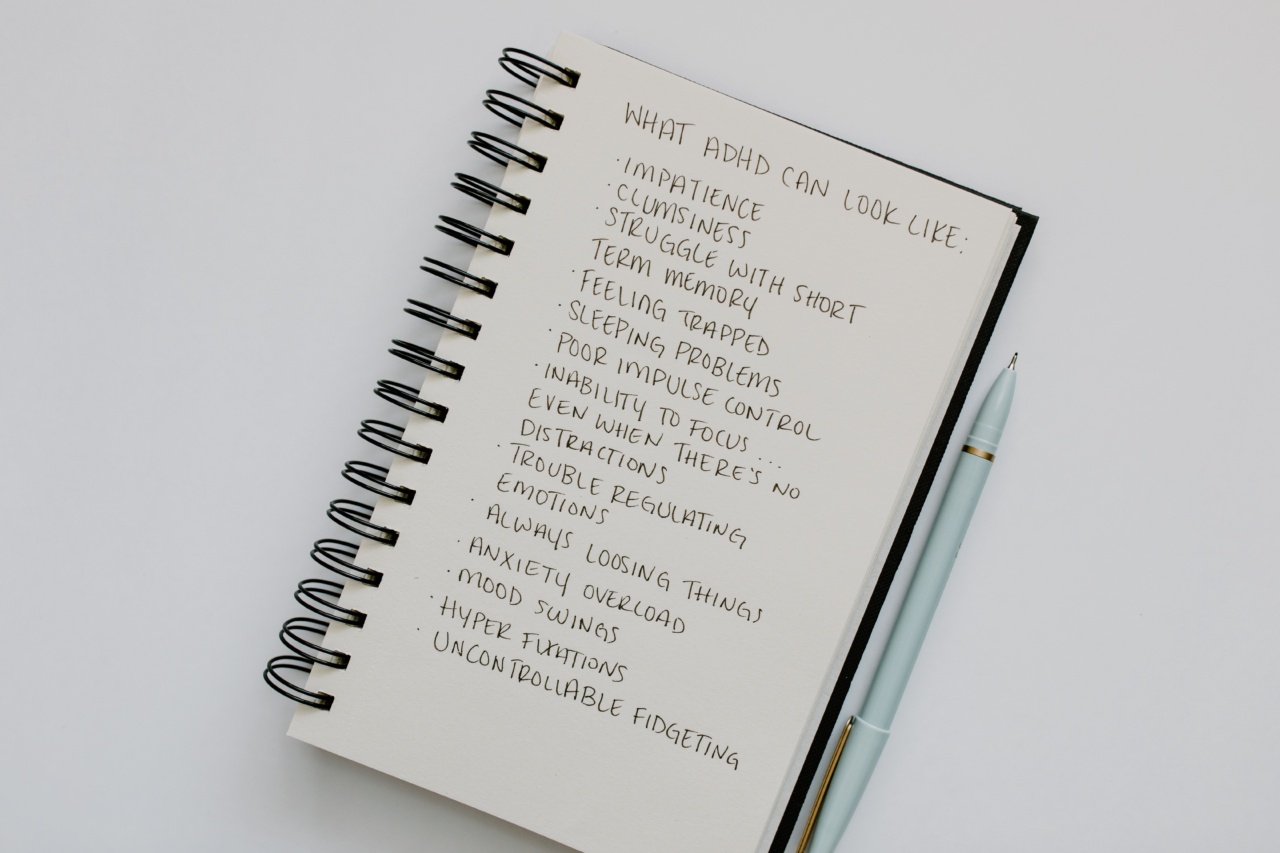Obsessive-Compulsive Disorder (OCD) is a mental health condition that affects millions of people worldwide. It is characterized by recurring unwanted thoughts, images, or urges (obsessions) that lead to repetitive behaviors or rituals (compulsions).
These obsessions and compulsions can interfere with daily life and cause significant distress. Here are six common signs of OCD:.
1. Excessive Cleaning and Handwashing
One of the hallmark signs of OCD is excessive cleaning and handwashing. People with OCD often have an intense fear of germs or dirt, and they may feel compelled to clean or wash their hands repeatedly to prevent contamination.
They may spend hours each day cleaning their home or meticulously washing their hands until they feel certain that they are free from germs. This obsession with cleanliness can significantly disrupt their daily routines and relationships.
2. Uncontrollable Checking
Another common sign of OCD is uncontrollable checking. People with OCD may constantly check locks, appliances, or other everyday items, even when they know they have already done so multiple times.
The fear of something terrible happening if they don’t check can be overwhelming. This behavior can consume hours of their day, making it difficult for them to focus on anything else. Whether it’s checking the stove, doors, or whether they turned off the lights, the compulsion to check becomes all-consuming.
3. Intrusive Thoughts
Intrusive thoughts are unwanted, distressing thoughts or images that repeatedly enter a person’s mind. These thoughts are often violent, sexual, or blasphemous in nature and can be very distressing for the individual experiencing them.
People with OCD may find themselves constantly trying to suppress these thoughts or engage in rituals to neutralize them. However, these rituals only provide temporary relief and do not address the underlying anxiety associated with the thoughts.
4. Symmetry and Orderliness
Individuals with OCD may have an intense need for symmetry and orderliness. They may feel the urge to arrange items in a specific way or align objects until they appear just right. Any perceived imperfection can cause significant distress.
This obsession with symmetry and order can consume a great deal of time and energy, making it challenging for people with OCD to complete everyday tasks or engage in social activities.
5. Hoarding
Hoarding is a common symptom of OCD. People with OCD may accumulate a large number of items and have difficulty getting rid of them.
This hoarding behavior can lead to cluttered living spaces and cause distress when others try to remove or organize their belongings. Hoarding can also pose health and safety risks, such as fire hazards or unsanitary conditions.
6. Rituals and Superstitions
People with OCD often have rituals or superstitions that they believe will prevent harm or bring good luck. These rituals can be highly specific and must be carried out in a particular order or manner.
For example, someone with OCD may need to tap a surface a certain number of times before feeling safe or repeat a word silently to themselves multiple times. These rituals can significantly disrupt daily life, as individuals feel compelled to perform them even when they know deep down that they are irrational.
The Impact of OCD
Living with OCD can be extremely challenging. The obsessions and compulsions can be time-consuming, leaving individuals feeling exhausted and overwhelmed. OCD can also strain relationships and hinder academic or professional progress.
The constant fear and anxiety associated with OCD can lead to a reduced quality of life and may contribute to the development of other mental health conditions, such as depression or anxiety disorders.
Seeking Help for OCD
If you or someone you know is struggling with OCD, it is vital to seek help from a qualified mental health professional.
OCD is a treatable condition, and with the right therapy, individuals can learn to manage their symptoms and regain control of their lives. Treatment options for OCD may include cognitive-behavioral therapy (CBT), exposure and response prevention (ERP), medication, or a combination of these approaches.
Conclusion
OCD is a debilitating mental health condition that affects millions of people worldwide. Excessive cleaning, uncontrollable checking, intrusive thoughts, symmetry and orderliness, hoarding, and rituals are all common signs of OCD.
These symptoms can significantly interfere with daily life and cause distress. Seeking help from a mental health professional is essential for anyone experiencing OCD symptoms. With the right treatment, individuals can learn to manage their symptoms and lead fulfilling lives.

























